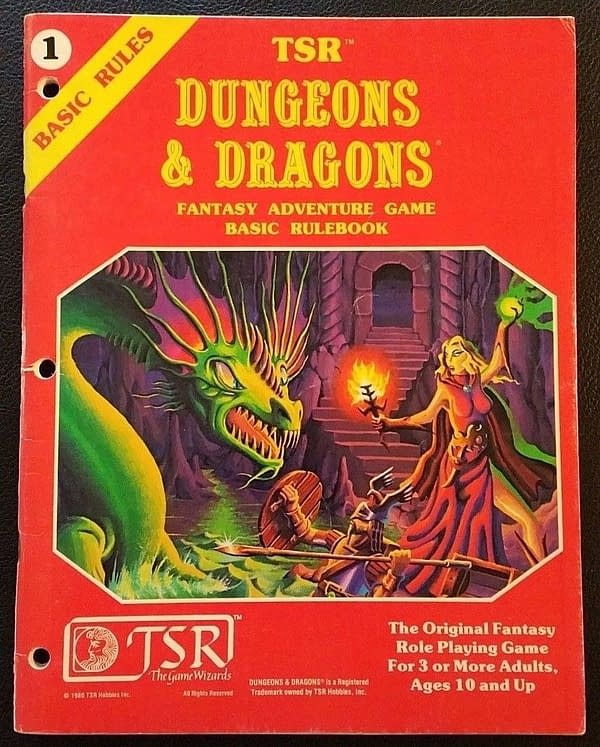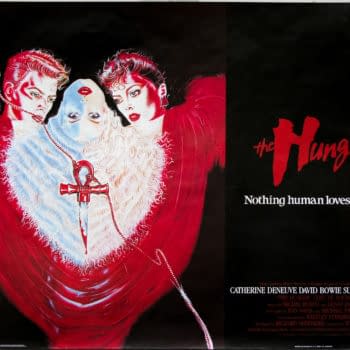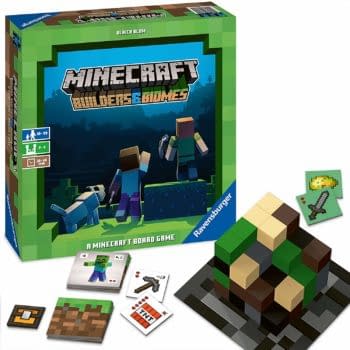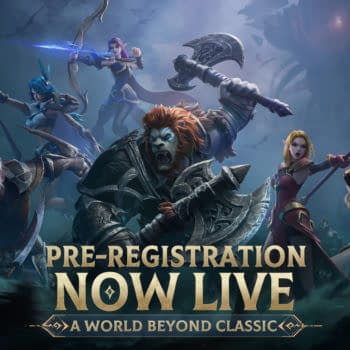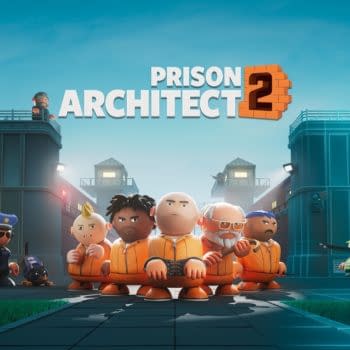Posted in: Games, Tabletop | Tagged: dungeons and dragons, Role Playing, roler playing games, rpgs
Leveling Up Your Dungeon Mastery: Pre-Game
Role-playing games have been a big part of my life for nearly four decades: I was introduced to them by a sixth-grade teacher who leveraged my love of the fantasy genre against my disinterest in school, and I haven't looked back since. That beat-up old red box got a lot of mileage, and I've made life-long friends in the years since based off of our shared love of RPGs.
One constant for me has been that I almost always end up running the game sessions that I play in, and I have noticed a lot of things that might help people that are getting into the hobby for the first time, and maybe even streamline some things for those of you that have been at it for a while.
For the first ten years that I ran dungeons, the scenario was the focus. I was tuned in to the ebb and flow of each session like a detective tracking an arch-criminal. I had binders full of Non Player Characters, maps of taverns and dungeons, and enough hand-drawn special weapons cards to choke a tribe of kobolds. My players would get together, and we would play for the weekend. We were teenagers, though, so that method of play flew right out the window when college, jobs, and romantic entanglements entered the picture. We also learned to play the games together, whether it was D&D, Boot Hill, Traveler, or Gamma World. The learning curve of getting into the flow of a game system never seemed that bad.
Flash forward a few decades (and four editions), and I've noticed that the RPG world is not as easy to navigate. Jobs, kids, even more college, and relationships can make a regular gaming session very difficult to schedule. Add to that the myriad number of game systems out there and you have a recipe for a pretty hectic game gathering. What can you do to make sure your hard-earned gaming time doesn't come crashing to a halt?
The Pre-Game
The pre-game session is probably the single greatest tool to get your group on the same page. It's pretty simple; get together for coffee or lunch, either one-on-one or in small groups. Do this before you've even set pencil to paper in designing your scenario. Talk about what kind of character each player wants to play. Get into details, too; your player will find it easier to inhabit the role of their character if the little quirks and habits come together for them before you start rolling dice.
Once the "feel" of the character is locked down, get the character sheet locked down. Your player may not have played this edition of your game system, or even played a role-playing game before. Working out all of the stats, modifiers, and abilities with them before the game session will help them understand how the game works, and their place in it. Explain game mechanics and how they come together in a live game scenario. If your player knows the game, or has done a bit of role-playing before, they'll put it all together pretty quickly. If not, though, they won't be quite so lost when that first session comes.
The Origin Session
One of my favorite things to do during a pre-game session is to establish the origin story of the player's character, and the best way to do that is to run a quick session! This will help ensure your player can pick up a few of the game's mechanics, and give you an idea of how well they'll do in the bigger session; the last thing you want to do is get your group together and realize one of your players is lost, confused, or miserable. The origin session will get them up to speed, and also helps get the character where they need to be for the campaign.
Say your player wants to run a Barbarian, but also wants to play a Bard. She loves the idea of tanking through melee encounters, and wants to spend down-time between adventures writing ballads about her own greatness. You get together online or over coffee, and make sure that she's statted out well in Strength, Constitution, and Charisma (or the relevant stats in your system). She has a name, all the right skills, a little background information, and maybe some motivations. Now, get her into the character.
The origin session should take that character from What She Did to What She's Doing. If you're going old-school and starting your campaign in the stereotypical tavern/bar/spaceginny, then the origin session is how she got there. This session really doesn't need to be more than an hour or two long, and should showcase what makes that character tick. If the player wants to play out a fight, run them through some combat. If their Barbarian wants to play a ballad about how awesome they are, play out how their charisma comes into play.
I like to play the life event that makes the character tick; every great character has one. Ed and Al tried to bring their dead mother back to life. Anakin turned on his family and comrades. Corbin Dallas got an interesting fare. What made your player's character into who they are? Were they disgraced in their village somehow? Did they get in trouble with the law? Are they a victim of mistaken identity? These are great, quick scenarios to play out with your player to get them invested!
I'll be exploring more tricks to streamline gaming in the future. What strategies have you used to get your game sessions going? Sound off below!


